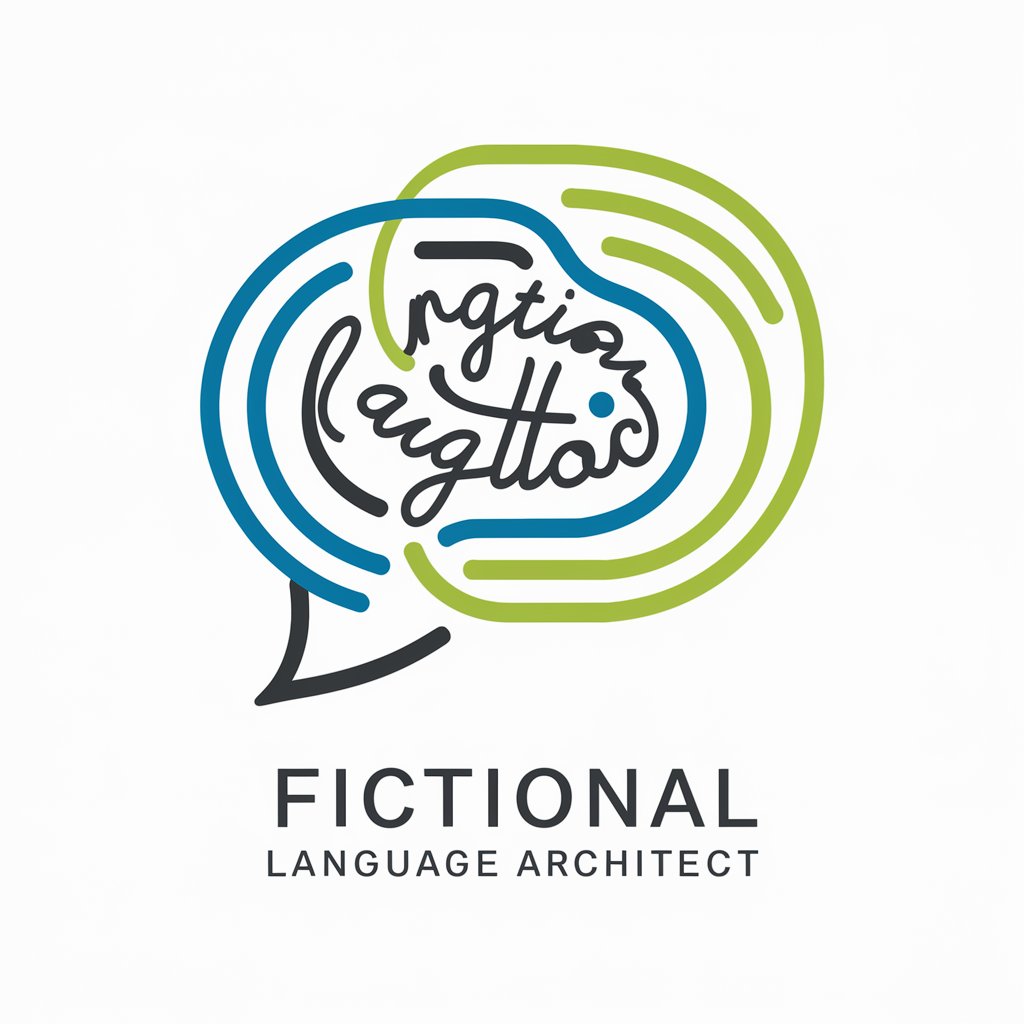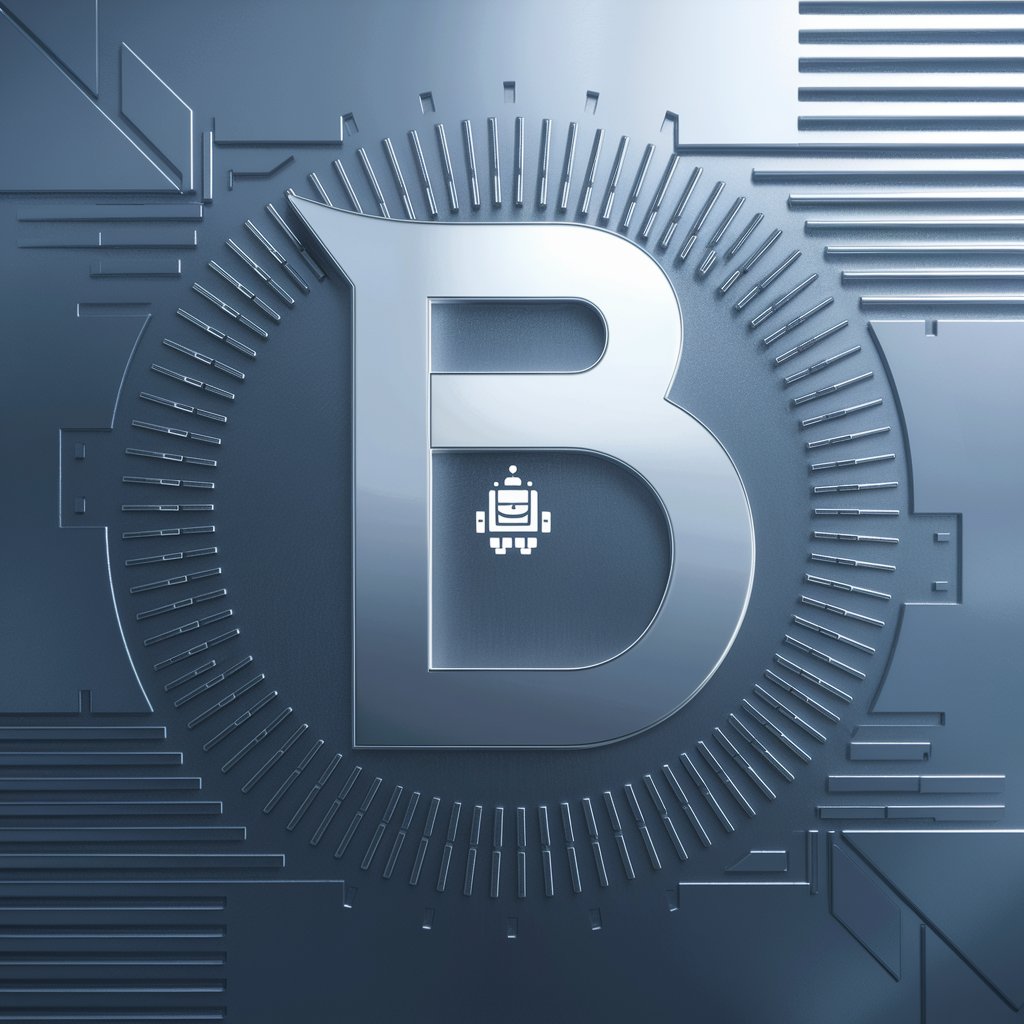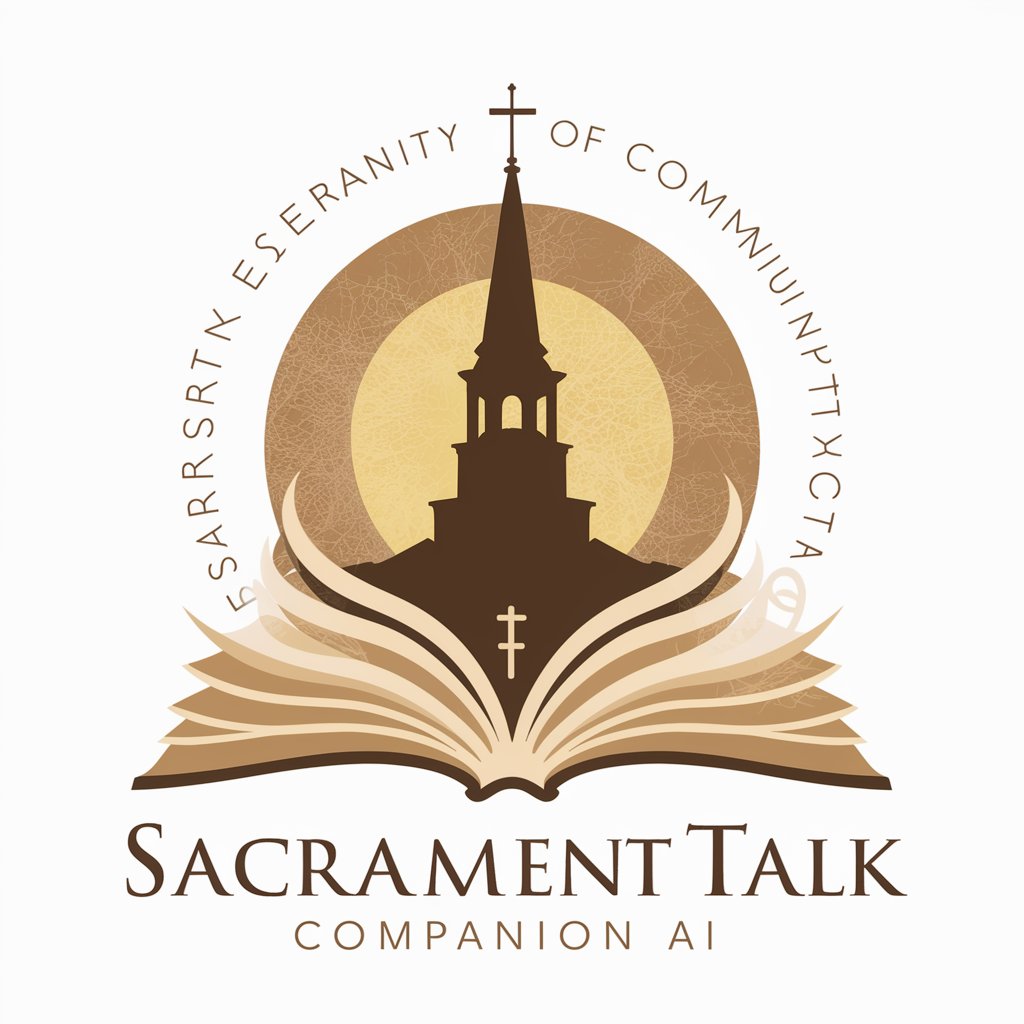Fictional Language Architect - Artificial Language Creation

Hello! Let's create and explore a new language together.
Craft Your Own Language, AI-Powered
Let's develop a unique language that...
Translate the following sentence into the newly created language...
Describe the grammar rules for...
Create vocabulary for a language that...
Get Embed Code
Overview of Fictional Language Architect
Fictional Language Architect is a specialized tool designed to aid in the creation and translation of artificial languages. It serves a unique role in the development of languages for various creative and academic purposes, focusing on the design of linguistic systems that can include unique alphabets, grammar rules, and vocabulary. This tool is particularly adept at constructing languages that fit specific atmospheric or thematic requirements, providing a sound structure that can be used in storytelling, game development, and world-building. For example, if a user is creating a fantasy novel and desires a language for their elven characters that sounds ancient and melodic, Fictional Language Architect can help design this language, complete with its own syntax, phonetics, and lexicon. Powered by ChatGPT-4o。

Core Functions of Fictional Language Architect
Language Creation
Example
Designing a language with soft consonants and vowel-rich words for a peaceful alien species.
Scenario
A science fiction author wants to develop a unique language for an extraterrestrial race known for their diplomacy and harmony. The author aims for the language to reflect these traits through its phonetic qualities.
Language Translation
Example
Translating English sentences into a newly created fantasy language, with detailed breakdowns.
Scenario
A game developer requires translations of key phrases into the language of the game's mystical creatures. This includes not just simple translations, but explanations of grammar and word use in context, aiding in the creation of authentic character dialogue.
Pronunciation Guide Creation
Example
Providing pronunciation keys for unique words in a constructed language to ensure consistency.
Scenario
For a tabletop role-playing game, the creator needs to ensure that all players pronounce the names of cities and characters consistently. Fictional Language Architect generates pronunciation guides alongside the language development.
Custom Grammar Rules Development
Example
Establishing a set of grammar rules for a language that does not differentiate between past and present tense.
Scenario
In a novel's world, the concept of time is non-linear. The author wants the native language of this world to reflect that by having a tense system that merges past and present, showcasing the unique perception of time by its inhabitants.
Target User Groups for Fictional Language Architect
Creative Writers
Authors and storytellers who are crafting narratives set in fictional worlds can utilize the service to create languages that add depth and authenticity to their characters and settings.
Game Developers
Developers working on video games, especially those involving extensive world-building, can benefit from designing unique languages that enhance the immersive experience of the game world.
Linguists and Language Enthusiasts
Individuals with an academic or hobbyist interest in linguistics can explore the process of language creation as a form of experimental linguistics or simply for the joy of creating new forms of communication.
Educators and Students
Teachers and students in linguistics or creative writing courses can use the tool as an educational resource to understand the principles of language development and apply them in practical projects.

How to Use Fictional Language Architect
1
Start your journey at yeschat.ai for a no-cost trial, bypassing the need for ChatGPT Plus or any sign-in requirements.
2
Choose your language project: Define your language's atmosphere, sound preferences, and grammatical structure to get started.
3
Utilize the tool to craft unique words and phrases: Input English sentences or words to receive translations in your custom language, complete with pronunciation guides.
4
Explore and expand your language: Use the translations to build a vocabulary list, create texts, or even write songs and poems in your new language.
5
Refine and iterate: Continuously work with the tool to adjust and perfect your language, taking advantage of the AI's feedback to enhance linguistic consistency and depth.
Try other advanced and practical GPTs
Bitcoin Whitepaper Explainer
Decoding Bitcoin's Foundation with AI

Module (M-10.5)
Empower your creativity and efficiency with AI

Buy and Sell Marketplace Assistant
Empowering Your Sales with AI

CRM Commander
Elevate Decision-Making with AI-Powered CRM Expertise

FREE T Shirt Design Tool
Design Your Story, AI-Powered Creativity

FREE LOGO MAKER TOOL
Craft Your Brand's Identity with AI

Inventor's Assistant
Empowering Your Inventions with AI Insight

Crypto Market Mentor
Navigate Crypto Investing with AI

Men's Health GPT
Empowering men's health with AI wisdom

Performance Prodigy
AI-powered performance enhancement tool

Sacrament Talk Companion
Crafting Inspirational Sacrament Talks with AI

WeatherPix
Visualizing Weather with AI

FAQs About Fictional Language Architect
What is Fictional Language Architect?
Fictional Language Architect is an AI-powered tool designed to help users create and develop their own artificial languages. It assists in defining the language's phonetics, grammar, and vocabulary based on user specifications.
Can I translate complex sentences with this tool?
Yes, the tool is capable of translating complex English sentences into your custom language, providing detailed breakdowns of each word's meaning and pronunciation.
How can Fictional Language Architect aid in language learning?
By creating a new language, users can explore linguistic structures and grammar, enhancing their understanding of language mechanics and diversity.
Is there a way to share the languages I create with others?
While the tool primarily focuses on language creation and translation, users can share their creations by documenting the vocabulary, rules, and translations, and distributing this information as desired.
What are the limits of customization in creating a new language?
The tool offers extensive customization options, from sound and grammar to vocabulary depth. However, the complexity and consistency of the language depend on continuous input and refinement from the user.
